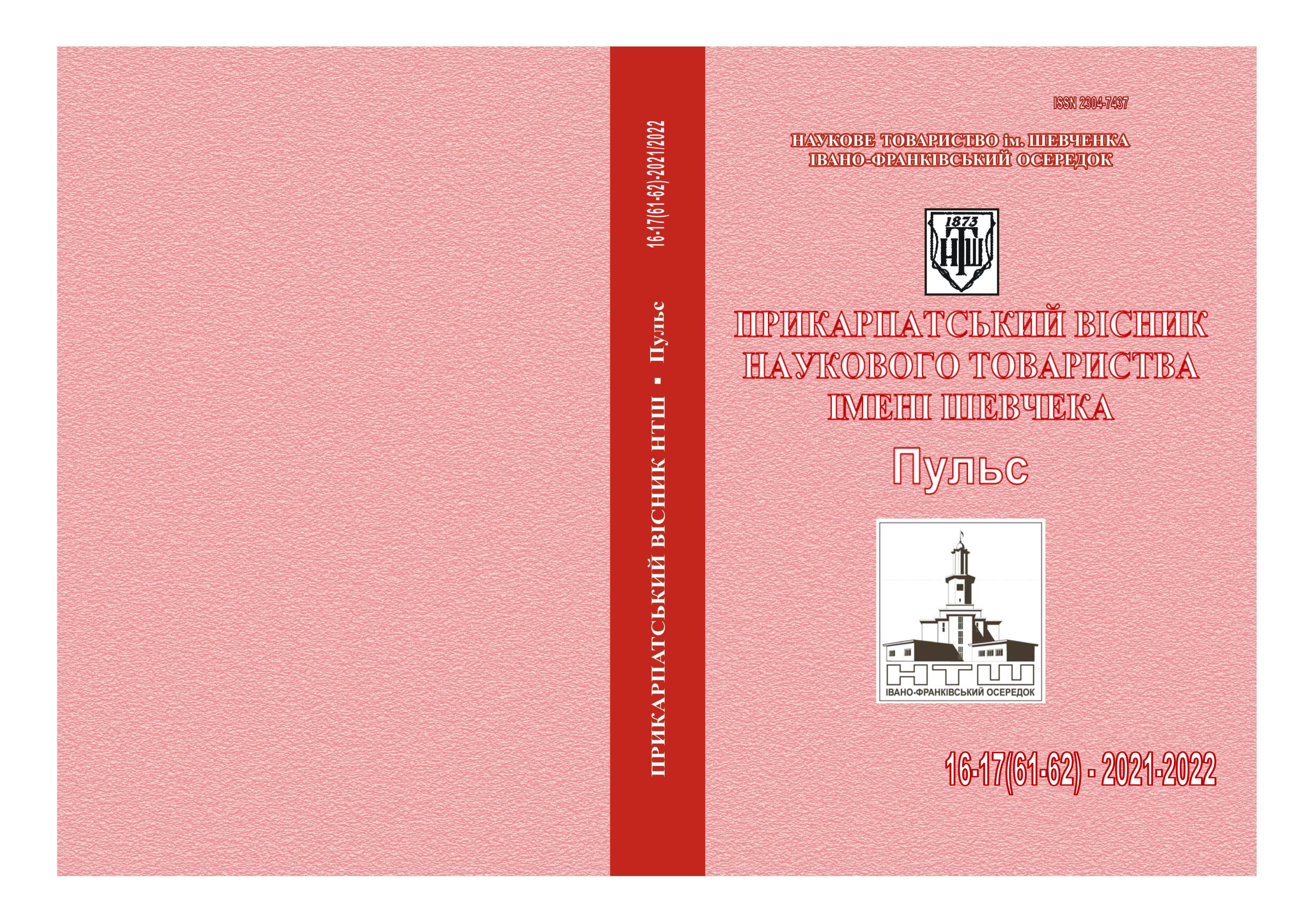РІВНІ РОЗЧИННОЇ МОЛЕКУЛИ ST2 У КРОВІ ХВОРИХ НА ДЕПРЕСИВНІ РОЗЛАДИ ТА СИНДРОМ СЕРЦЕВОЇ НЕДОСТАТНОСТІ ІШЕМІЧНОГО ГЕНЕЗУ
DOI:
https://doi.org/10.21802/2304-7437-2021-2022-16-17(61-62)-49-56Ключові слова:
депресія, серцева недостатність, ST2Анотація
Психічні захворювання займають чільне місце серед найбільш поширених недуг у світі. Серцева недостатність (СН) – глобальна епідемія, яка охоплює щорічно більшу кількість населення планети: у понад 37,7 млн. осіб верифікований зазначений синдром. Депресивні розлади різного ступеня виявляють у 9% – 60% пацієнтів із СН, що призводить до погіршення перебігу синдрому, зростання ризику повторних госпіталізацій та смертності. Відомо, що ST2 відноситься до родини прозапального інтерлейкіну-1 (ІЛ-1), є маркером прогресування СН та предиктором несприятливого. На нинішній день наявні суперечливі дані стосовно ролі рівнів ST2 у крові хворих із синдромом СН та депресією. Мета дослідження: оцінити зв’язок між рівнем ST2 у крові пацієнтів із СН та проявами депресії. Матеріал та методи дослідження:Обстежено 129 хворих на депресію різного ступеня тяжкості на тлі синдрому СН ішемічного ґенезу, ФК ІІ-IV (NYHA). Скринінг депресивних розладів проводили з використанням Госпітальної шкали тривоги та депресії, відповідно до якої, 8 та більше балів свідчили про депресію. Тяжкість депресивних розладів визначалась із урахуванням шкали Гамільтона. Проводили трансторакальнуехокардіографію; вміст у плазмі крові розчинної ST2 (sST2) та титрів N-кінцевого фрагменту мозкового натрійуретичного пептиду (NT-proBNP) у крові визначали методом ІФА. Статистичний аналіз здійснювали з використанням стандартного пакету програм “Statisticafor Windows 12.0” (StatSoft, Tulsa, OK, USA). Результати дослідження. Середній вік обстежених пацієнтів склав (67,21±11,73) років; серед них – 41 жінка (31,8%). Відмічено, що рівні розчинної ST2 та NT-pro-BNP в крові хворих на депресивні розлади та СН ішемічного ґенезу збільшувалися зі зменшенням ФВ ЛШ. Відповідно до опитувальника Гамільтона, більшість пацієнтів із СН страждали на депресивні розлади помірної інтенсивності – 96 (74,4%) осіб. Уніваріантний кореляційний аналіз показав прямий зв’язок між рівнями розчинної ST2 у крові обстежених пацієнтів та виразністю депресивних проявів (rs=0,33; р=0,041); вмістом у крові NT-pro-BNP (rs=0,51; р=0,015); частотою серцевих скорочень у спокої (rs=0,31; р=0,011) та зворотний зв’язок із величиною ФВ ЛШ (rs=-0,39; р=0,043).
Висновок. У пацієнтів із депресивними розладами та супутньою серцевою недостатністю ішемічного ґенезу відмічаються підвищені рівні розчинної молекули ST2 у крові, які залежать від інтенсивності проявів депресії та порушення скоротливої функції міокарда.
Посилання
GBD 2019 Diseases and Injuries Collaborators. Global burden of 369 diseases and injuries in 204 countries and territories, 1990-2019: a systematic analysis for the Global Burden of Disease Study 2019. Lancet. 2020;396(10258):1204-1222
COVID-19 Mental Disorders Collaborators. Global prevalence and burden of depressive and anxiety disorders in 204 countries and territories in 2020 due to the COVID-19 pandemic. Lancet. 2021;398(10312):1700-1712
Ziaeian, B, Fonarow, GC. Epidemiology and aetiology of heart failure. NatRevCardiol. 2016;13(6):368-378
Freedland KE, Carney RM, Rich MW, Steinmeyer BC, Skala JA, Dávila-Román VG. Depression and Multiple Rehospitalizations in Patients With Heart Failure. Clin Cardiol. 2016;39(5):257-262
Fang Qiujue, Wang Zhaojun, Yuan Wei, Ding Shu, Wang Zhongqun. Correlation between soluble ST2 and coronary artery complex lesions and their severity. Chinese Journal of Clinical Pharmacology and Therapeutics. 2021; 26(3): 278-284
Mc Donagh TA, Metra M, Adamo M, Gardner RS, Baumbach A, Böhm M, et al. 2021 ESC Guidelines for the diagnosis and treatment of acute and chronic heart failure. Eur Heart J. 2021;42(36):3599-3726
Annunziata MA, Muzzatti B, Altoè G. Defining hospital anxiety and depression scale (HADS) structure by confirmatory factor analysis: a contribution to validation for oncological settings. AnnOncol 2011; 22: 2330-2333
Diez J. Serumsoluble ST2 as a biochemical marker of acuteheart failure. J. Am. Coll. Cardiol. 2008;52:1466–1467
Boisot S, Beede J, Isakson S etal. Serial sampling of ST2 predicts 90-day mortality following destabilized HF. J. Card. Fail. 2008; 14(9):732–738
Bayes-Genis A, deAntonio M, Galán A, etal. Combineduseofhigh-sensitivity ST2 and NT-pro BNP toimprovethepredictionofdeathinheartfailure. Eur J HeartFail 2012; 14: 32-38
Xu SD, Su GH, Lu YX, Shuai XX, Tao XF, Meng YD, Luo P. Elevated-soluble ST2 and depression in creased the risk of all-causemortality and hospitalization in patients with heart failure. Int Heart J. 2014;55(5):445-450

